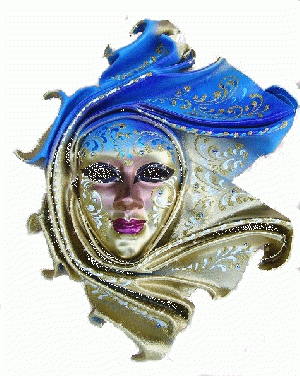Language/Modern-greek-1453/Culture/The-Carnival-in-Greece
The word "Carnival" is considered to come from the Latin words "carne" = meat and "vale" = abstain (or according to others from the word "levare" = lift).
The corresponding Greek word is "Apokria" (απο+κρεω) which also means "abstinence from meat" and indicates the period of preparation for the fasting of Great Lent, as prescribed by the tradition of the Orthodox Church.
The world-famous Carnival celebration has its roots elsewhere, in ancient Greece and specifically in paganism rituals of the ancient Greeks in honor of Dionysus, God of wine and celebrations.
The most well-known Dionysian festival was the Anthestria which took place for three consecutive days days in Athens, during the month of Anthestiriona, i.e. end of February to beginning of March. In all these holidays the common element that remains to this day is one, the satirical disguise.
1st day pithoígia[edit | edit source]
They opened the wine cellars with the new wine
They used to bring the first wine to the sanctuary of Dionysus in Limnais, they made libations in honor of God, hoping to happily consume the new production.
They tasted the wine themselves, danced and sang thanks to Dionysus that day as well as the next.
The Athenians allowed the slaves to drink with them.
2nd Day Hoes[edit | edit source]
It was the procession of Dionysos entering the city on a wheeled boat.
On the ship were disguised followers of the God Dionysus.
These disguised were the Satyrs, and they teased the people with profanities creating mirth and joy and comical mood.
The disguised Satyrs wore a mask. These masks were clay and similar to each other.
3rd day Khytroi(day of Anthesteria: Pots)[edit | edit source]
They cooked the polyspora (panspermia, kolyva), which they dedicated to the chthonic Hermes, the psycho-supplier.
The tradition that explains panspermia is that those who were saved from the Deluge of Deucalion, cooked a "pot of panspermia".
On All Souls' Day they believed that souls returned to the upper world and were invisible among the living.
In ancient Greece this satire was expressed with clay masks or animal skins while some satyrs painted their faces with grapes - the dregs of the wine - and were crowned with ivy branches - the sacred plant of Dionysus - trying to cut him off at the moment
who appeared with his wheeled boat.
There were winemaking competitions and some customs such as the marriage of the God Dionysus with the queen-wife of the respective king of Athens -while in the afternoons, the well-known teasing of passers-by took place, the so-called "car pranks".
This tradition eventually spread to other parts of the world through the Roman Empire, but pagan practices they were so deeply rooted that they were not completely abolished. When Christianity came along though people stopped worshiping the gods of Olympus, the habits of the Greeks to dress up and celebrate in the streets remained.
Nowadays these customs have survived but slightly mutated.
Other Lessons[edit | edit source]
- Narcissism
- Mediterranean diet
- Ηistorical period of Greek language
- Moussaka
- Architecture de l’Antiquité
- Hetaira
- History of Astronomy
- Poetry
- Allegory in Art and Literature
- épopée Homérique Odyssée


